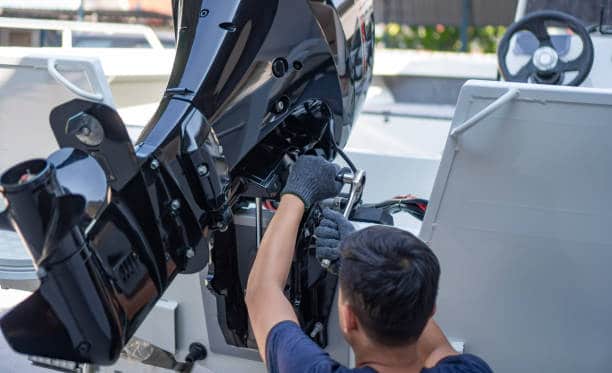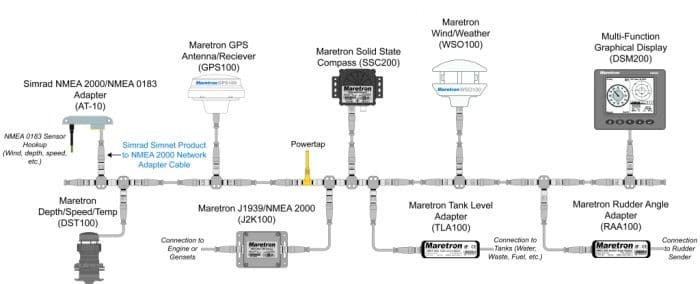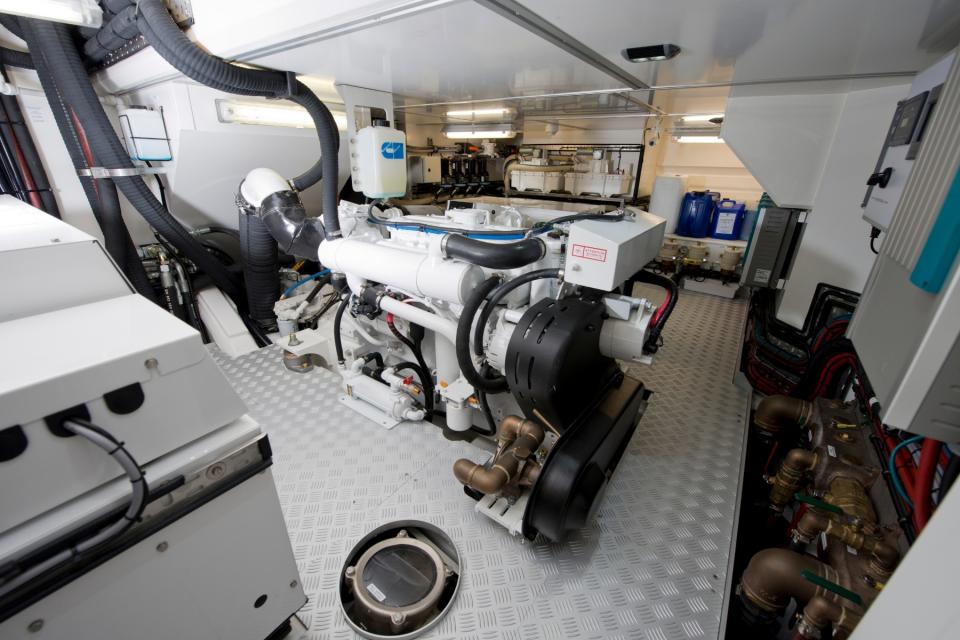Course objective: Prepare sailors to maintain, troubleshoot and repair their engines
Pre Course Experience: None
Assumed knowledge: None
Duration: 5 days
Cost: €1000
What will I learn ?
- Principles of diesel (4 strokes)
- Principle of outboard (2 strokes – 4 strokes)
- Parts of engine
- Electrical systems (solenoid, starter, alternator, batteries…)
- Fuel systems (fuel pumps, filters, bleeding…)
- Cooling systems (sea water/fresh water cooling systems)
- Maintenance (oil, fuel filters, oil change, impeller change, winterizing…)
- Troubleshooting (starting a motor, smoke analysis, rocker adjustment…)
- Engine repair
- Basic electricity and electronics principles
More details
The Deck Engineer 40GT course & certification appeals to crew members of all levels on a variety of vessels, whether they are operating or cruising, near-coastal, offshore or oceanic. The objective of the course is to enable crew to achieve a sound understanding of the workings of the engines & systems that are typically found on vessels up to 40GT.
The course syllabus is extensive, both in the classroom theory and practical workshop exercises. It is assumed that you have very little knowledge of marine engineering and on-board systems. The course includes :
- basic workings of the marine diesel engine,
- propulsion units,
- fuel systems,
- hydraulic systems,
- electrical systems,
- digital systems,
- fixed fire extinguishing systems,
- water makers,
- air conditions,
The course is designed to enable crew to be able to competently communicate with service engineers and technicians, and if necessary, undertake basic fault-finding and minor adjustments on-board under their remote supervision. Included within the course, is the basics aspects of health & safety, also covering other related issues including but not limited to MARPOL and deck related safe working practices (SWP). The teaching structure is interactive with the theory elements leading into the practical aspects.
Key aspects :
- Comprehensive syllabus written by technicians and marine engineers.
- Suitable for crew of sailing yachts, motor yachts & commercial workboat vessels.
- The course format is designed to cater for all levels of academic ability.
- The course seamlessly leads into the DE80GT directly from the DE40GT.
This course and certificate/endorsement is a great interactive course, with a logical step-by-step learning structure. The knowledge and confidence gained just by doing the course really makes you look at engines and systems found on-board in a very different way.
This is a course where you get your hands dirty ! Most sailors have had experience with engine failure (yours truly !) and it usually happens when you need your diesel the most, like when you want to enter a marina for instance. From diesel bugs in the fuel tank to leaking cooling systems or faulty injectors… most skippers have had to get the tool box out and become contortionist to get to the engine compartment to fix diesel engine problems.
Diesel engines (unlike outboards) are very sturdy and if well maintained, will run forever. But the sea environment is very aggressive on marine diesel and care should be taken to ensure proper functioning.
We have at our disposal a marine diesel engine and an outboard, both accessible in our workshop in addition to starter motors, alternators, cooling systems. You will learn how to recognize each part and their functions. The engine can be taken apart to observe the pistons, the injectors, the rocker arms, the heat exchanger, the solenoid and starter motor.
We will teach you how to inspect and clean each part, troubleshoot electrical components like the voltage regulator on the alternator, the solenoid. With a multimeter, you can monitor conductivity and resistance on several parts, check if there is a ground fault …
We will look at the fuel intake system from the tank to the injectors, through each filter and the injector pump to verify that fuel is reaching the combustion chamber.
You will come out of this diesel course with a good understanding of the maintenance and troubleshooting of a basic diesel engine and be able to perform most repairs.
Then we will move to the more capricious outboards with their 2 strokes (mostly), rattling noises, smokes and constant problems that only a Zen Buddhist master can start without loosing his temper.
We will start by looking at the principle of petrol engines (as opposed to diesel) and 2 strokes (as opposed to 4 strokes on an inboard diesel). We will focus on the functioning of the carburetor by dismantling it and look at the jets and how the air/fuel mixture is controlled. Armed with a screw driver we will find that delicate tuning point where the idle position is neither stalling the engine nor making more noise than a 747 taking off.

In addition to diesel and petrol engines, we will look at and play with a full NMEA 2000 network with GPS, Compas, depth sounder ….

Book your course now:
Palawan Sailing courses start at 9:30am and finish at around 4:30pm.
We have a maximum of 4 students per boat and a minimum of 2 students. It is recommended that you contact us to book your course.
Call +639 060185714 (please remember the time difference with the Philippines : UTC/GMT +8 hours) to inquire or book or use our contact form.
Deck Engineering course price:
€1000
You can pay by cash or Paypal. All our prices are fixed.
Note : All our courses have to be paid in Philipino Pesos. The prices in Euros are informative.

